
On April 9, 2021, Buckingham Palace announced the death of His Royal Highness Prince Philip, Duke of Edinburgh, husband of Queen Elizabeth II, at their home in Windsor Castle, just two months shy of his 100th birthday. Prince Philip and the Queen were married 73 years, and he was the longest-serving consort in British history. The couple have four children, eight grandchildren, and ten great-grandchildren, with another on the way, due this summer.
Born as Prince Philip of Greece to a Danish royal house, the future Duke of Edinburgh was the only son of Prince Andrew of Greece, fourth son of King George I, and was sixth in line of succession to the Greek throne at his birth. Not for long; his family was exiled from Greece after a referendum established a republic when Philip was 18 months old, and though the monarchy was restored in 1935, Philip never again resided in his homeland.
Through his mother, Princess Alice of Battenberg, Philip was a descendant of Britain’s Queen Victoria, and was third cousin to his wife. Though of Germanic origins, his mother’s family was based in England, and anglicized their surname to Mountbatten in 1917 during the Germanophobia that swept that nation in World War I. Philip gravitated to his maternal relations, joined the British Navy in 1940, and was made a naturalized citizen in 1947, shortly before his marriage.
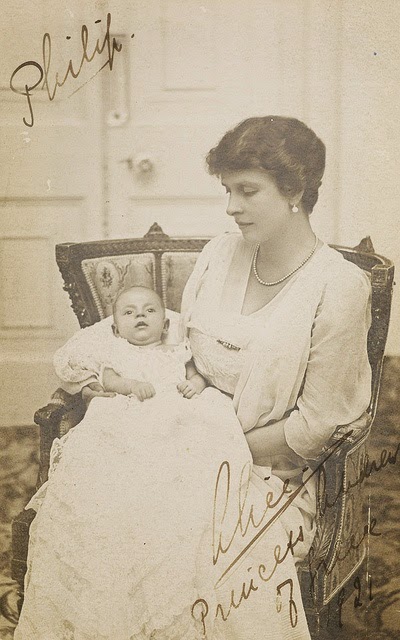
Philip was an active working spouse, only retiring from public engagements three years before his death. The Palace estimates that over the course of his career, the Duke of Edinburgh had taken up more than 22,000 solo engagements, 637 overseas visits, delivered approximately 5,493 speeches and worked as a patron to almost 800 organizations. He died peacefully in his sleep during convalescence from a heart procedure in March. He was known for his acerbic wit, a tendency to short-tempered outbursts, and occasional controversial utterances which landed him in trouble with his adopted countrymen. But he was a tireless proponent of modernizing the British monarchy, adapting to current trends and bringing the Royal Family into the 21st century.
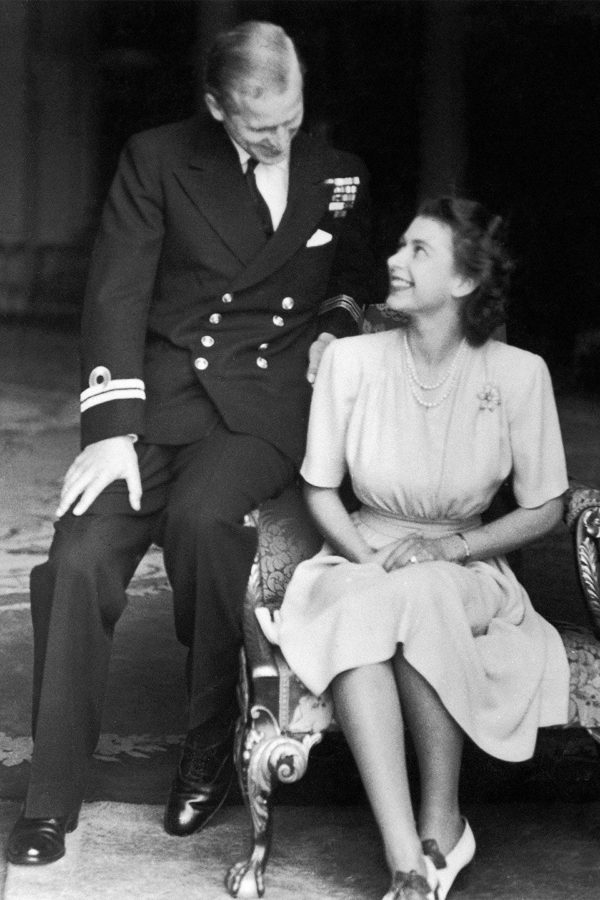
Born 10 June 1921 on a dining room table in the royal villa on Corfu, Greece, unfortunately no reliable record of Philip’s time of birth exists. The Sun at 18 Gemini conjoins Mars at 24 Gemini, giving rise to the bouts of temper, the famously vibrant, energetic constitution, and the interest in a career in the armed forces. A naval post specifically is foreshadowed with asteroid Navi (for “navy”) also conjunct the Sun and Mars from 28 Gemini, as well as Poseidon (the asteroid of that name, not the nonextant Uranian planet), which at 25 Virgo conjoins Saturn at 18 Virgo and squares the Sun. Asteroid Britten at 20 Virgo, homophone of “Britain”, designates which navy he would choose, and increases the pull toward England as his home. (The Sun also opposes TNO Albion at 23 Sagittarius, an ancient name for Britain, further tying his destiny to that of the island kingdom.) Asteroid Saylor, homophone of “sailor”, appears at 19 Taurus in close trine to Saturn, further inclining him to that profession; lastly, Neptune at 11 Leo, planetary ruler of the sea and sailors, conjoins asteroid Philippa, the feminine equivalent of Philip and its closest celestial referent, at 13 Leo.
The Sun not only squares that Saturn at 18 Virgo, but also Jupiter at 10, showcasing the dual parts of Philip’s essential nature. Naturally outgoing and gregarious in social gatherings (Jupiter), Philip could also be stern, caustic, driven for perfection, and somewhat aloof with those close to him (Saturn), most notably his son Charles, with whom he had a strained relationship in Charles’ youth. The Sun/Mars combination also made him a bit of a martinet, with Saturn further encouraging a spartan lifestyle in many ways. Philip famously managed the books for the Royal Family, finding ways to economize and cut corners without dulling the allure of Majesty. There is a solar T-Square with Uranus at 9 Pisces, adding to Philip’s aura of controversy and his energetic demeanor; he could be a loose cannon, but again we see the influence of technology, modernity and science on his approach to many practical problems.
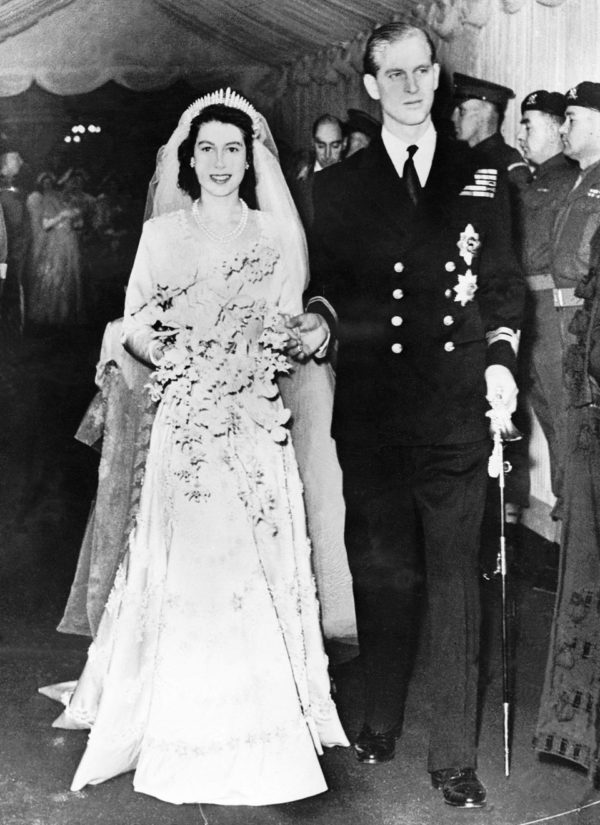
Jupiter, of course, also rules royalty, and its trine to asteroid Edinburgh at 8 Taurus, conjoined Venus at 5, previews the title by which he would be known, and the fact that he acquired it via his wife (Venus). Edinburgh itself squares Philippa at 13 Leo, which is conjoined by asteroid Duke at 14, providing the style for his title; Philippa is also sesquiquadrate asteroid Prinz, the German form of “prince”, the title with which he was born and is most identified, at 1 Capricorn.
With Pluto at 7 Cancer conjunct Mercury at 13, Philip could be absolutely devastating verbally, but he had a keen intellect and a mind that probed deep below the surface. Philip pulled no punches in his speech, ruffling feathers throughout his career; as late as 2007 he reduced a 13-year-old schoolboy, an aspiring space traveler, to tears by telling him, “You’re too fat to be an astronaut.”
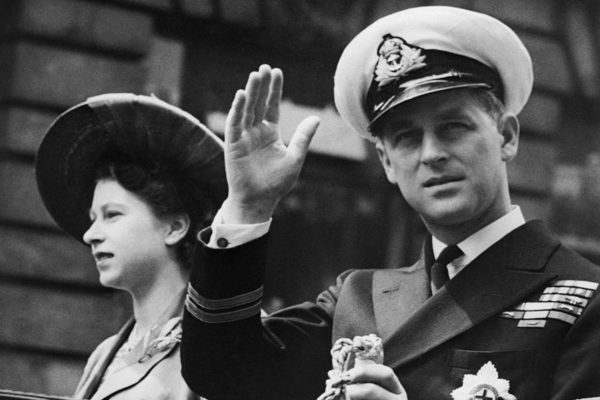
The only stationary point in his natal chart is asteroid Elisabetha, closest match for “Elizabeth”, which turned retrograde ten days after his birth. Stationary bodies are the still points upon which the chart revolves, and exert an oversized influence on character or biography. At 25 Aquarius, Elisabetha conjoins asteroid Hera at 26 Aquarius, named for the Greek goddess of marriage, forecasting the union between them; Hera/Elisabetha also squares natal Regina, Latin for “queen”, at 26 Scorpio. Another indicator of a royal match can be seen in a Grand Trine from Jupiter to Venus and asteroid Juno, named for Hera’s Roman counterpart, at 10 Capricorn.
This Grand Trine forms a Kite which has two “strings”, in oppositions from Juno to Pluto, and Jupiter to Uranus, illustrating the unexpected (Uranus) good fortune (Jupiter) found by Philip in his love-match (Venus) marriage (Juno), which totally transformed (Pluto) the circumstances for this penniless, disinherited princeling, and vastly increased (Jupiter) his personal power (Pluto).
That theirs was likely a love-match, at least from the bride’s perspective, can be seen in Elizabeth’s (born 4/21/26, 2:40 AM GMT, Mayfair, London England, Rodden rating AA) Venus at 13 Pisces, squaring Philip’s natal Sun. Venus also conjoins Prinz at 21 Pisces and trines Duke at 5 Cancer, making her predisposed to show affection to a princely duke. Apparently Elizabeth set her cap for Philip at the tender age of 13, when she first met the dashing naval cadet, and no one else would do. Her natal Hera at 27 Pisces exactly conjoins Uranus, perhaps prompting the somewhat unorthodox, out-of-the-box choice, deemed almost unsuitable by some, given his relative poverty, exiled status and his family’s precarious position in Greece; Hera also squares Philip’s Sun and Mars, suggesting a sexual component to her attraction as well. Natal Juno at 26 Aquarius is an exact match for his natal Hera and also conjoins his Elisabetha, and is trine her natal asteroid Philippa at 29 Gemini.
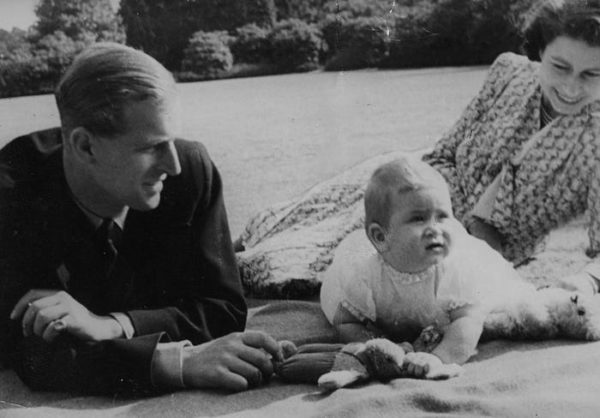
Philip’s natal Venus/Edinburgh at 5 and 8 Taurus conjoins Her Majesty’s natal Sun at 0 Taurus, with natal Edinburgh at 5 Taurus, so we can assume the romantic compatibility was strong on both sides. His Venus exactly on her Edinburgh, for the title she gave to the love of her life, is really quite extraordinary to see.
Their union was impeccably timed as well, with asteroid Edinburgh exactly on the Sun at 27 Scorpio, also conjoined asteroid Duke at 22 Scorpio, all highlighted on the 23 Scorpio MC, the focus of all eyes. 25 Scorpio is Elizabeth’s MC, and conjoined by her natal Saturn at 24 Scorpio and his natal Regina at 26 Scorpio, representing the man who would be her consort (Regina/Saturn).
Transit Juno at 7 Capricorn is preparing to return to its natal degree in Philip’s chart, prompting the change in marital status at the dawn of a new cycle, while transit Philippa at 28 Gemini is returning to its natal degree in Elizabeth’s chart, reinforcing her connection to him. Juno also opposes his natal Pluto exactly, reiterating the utter transformation this union would create for him.
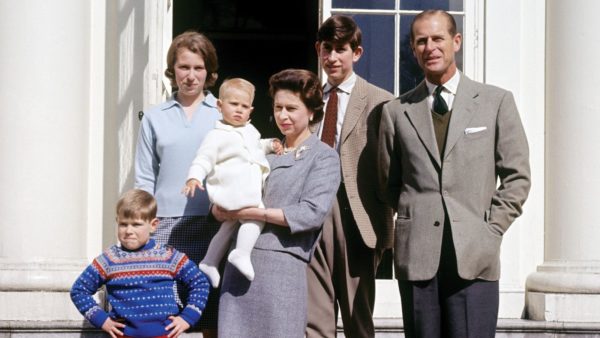
Transit Hera at 2 Capricorn conjoins his natal Prinz at 1 Cap, as well as her natal Albion at 0 Capricorn and asteroid Filipoff, another Philip variation, at 5 Cap, with Hera also opposing transit Prinz at 4 Cancer. Transit Venus at 17 Sagittarius squares his Sun and her Venus and natal asteroid Elisabetha at 11 Pisces.
This was surely a match made in heaven, with asteroid Groom at 22 Cancer on the 18 Cancer Descendant, opposing asteroid Briede (for “bride”) at 25 Capricorn on the 18 Cap Ascendant. Incredibly, this Groom/Briede opposition repeated at the wedding of her grandson Prince Henry to Meghan Markle in 2018, 71 years later, also in Cancer/Capricorn, and also on the Horizontal Axis!
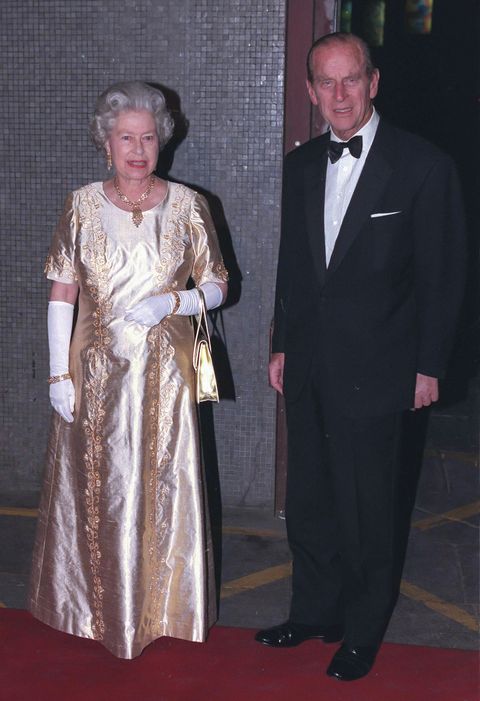
When Prince Philip’s death was announced from Windsor at 12:01 PM BST on April 9, 2021, transit asteroid Atropos at 22 Cancer, named for the mythic Greek Fate who severs the thread of life at death, was rising on the 28 Cancer Ascendant, opposing transit Pluto, modern lord of death, at 26 Capricorn on the Descendant, marking the time as associated with demise. With Atropos was transit asteroid Prinz at 1 Leo, more closely aligned with the Ascendant and also opposed Pluto. Transit asteroid Philippa at 25 Libra formed a T-Square with these, while transit asteroid Duke at 29 Aries filled in the missing leg of the Grand Cross and supplied the specifics of whose death was proclaimed.
The 2 Libra IC was an exact match for Philip’s natal asteroid Rip, which functions as a death indicator in the form of the acronym “RIP”, “Rest In Peace”, a common tombstone inscription. With the 2 Aries MC, these form a tight T-Square with natal Prinz at 1 Capricorn. Add in Philip’s natal Pluto at 7 Cancer, and we have a loose Grand Cross.
An exact pairing of transit asteroids Anubis (named for the Egyptian deity governing funerary rites) and Edinburgh at 20 Gemini is an astoundingly clear statement of the fact of his death, and was energized by transit Mars at 21 Gemini, also squared by transit asteroid Osiris (named for the Egyptian god of the dead) at 23 Pisces, with transit Neptune, ruling seamen and sailors, at 21 Pisces. Anubis/Edinburgh conjoins the natal Sun, and natal Saturn, ancient lord of death, at 18 Virgo makes a T-Square.
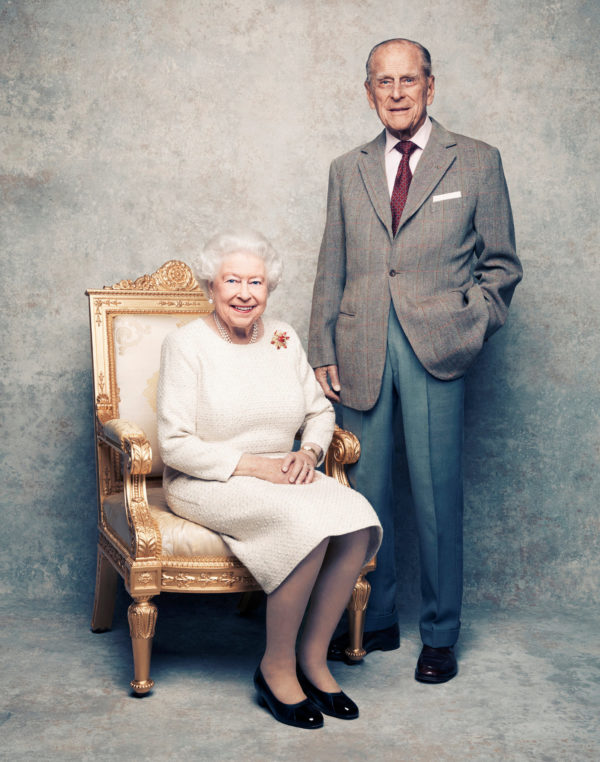
The transit Sun at 19 Aries is preceded by transit Mercury at 9 Aries, transit asteroids Britten at 11 and Rip at 12 Aries, bringing news (Mercury) of the death (Rip) of a prominent (Sun) Brit (Britten). The Sun also squares natal asteroid Requiem, named for the funeral mass for the dead, at 21 Cancer, which aligns with the transit Atropos/Ascendant as well. Natal Atropos at 13 Leo was embroiled in a T-Square with transit asteroid Lachesis, named for her sister Fate, who determines the span of life, at 15 Scorpio and transit Saturn at 11 Aquarius; also included in transit Filipoff at 19 Aquarius. Natal asteroid Anubis, exactly conjunct natal Edinburgh at 8 Taurus, makes this a Grand Cross. Natal Lachesis at 23 Leo is squared by transit Requiem at 24 Taurus and also incorporates Filipoff in another T-Square.
Transit asteroid Nemesis, a point representing ruin, destruction and undoing, had come to its retrograde station just four days prior, and at 12 Sagittarius was exactly conjunct Philip’s natal asteroid Osiris.
Eclipses played a part in setting the stage for his departure as well. The Solar Eclipse of December 14, 2020 at 23 Sagittarius broadly opposed his Sun, preparing the ground. Philip didn’t make it to the next Solar Eclipse, but on his next birthday, June 10, an eclipse at 19 Gemini will find his Sun regardless, emphasizing the light that has been extinguished.
It seems a shame that Philip wasn’t spared a few months to see his 100th birthday, but as the transits above portray, his time had simply come. And Philip himself once stated in 2000, when contemplating his mother-in-law’s approaching centennial, that he “couldn’t imagine anything worse” than turning 100, and had “no desire whatsoever” to reach the same age. “Bits of me are falling off already,” he bemoaned. Well, he got his wish, if narrowly.
Often in cases where couples have been together as long as the Windsors, when one spouse passes, the other shortly follows, deprived of their support, bereft of their love. Queen Elizabeth will be 95 on April 21, and surely her days are numbered, regardless. Is the long-delayed reign of Charles III, most patient heir in history, looming on the horizon?
Alex Miller is a professional writer and astrologer, whose website AlexAsteroidAstrology.com offers a trove of info on the role of asteroids in personal and mundane astrology. He is the author of The Black Hole Book (available on Amazon.com) and The Urban Wicca, former editor of “The Galactic Calendar,” and past president of The Philadelphia Astrological Society. His pioneering work with Black Holes in astrological interpretation began in 1991, when his progressed Sun unwittingly fell into one. Alex’s books and writings are available on his website. Alex can also be reached for comment or services at .
Leave a Reply